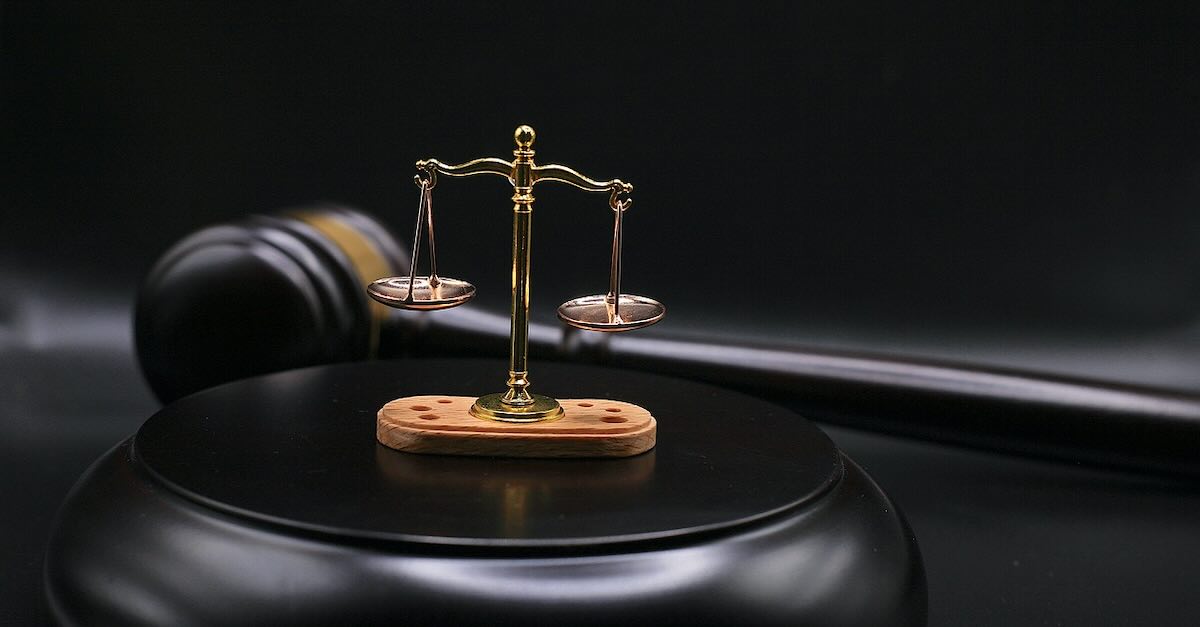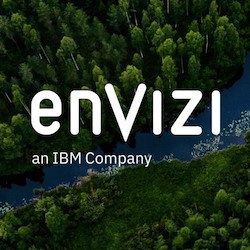Multiple media companies and content producers have filed lawsuits against Generative AI (artificial intelligence) software companies such as OpenAI (maker of ChatGPT), Microsoft, Google, Anthropic, Midjourney, Stability AI, Perplexity AI, Salesforce and DeviantArt, and chip giants Nvidia and Intel. Even Apple Intelligence technology faces a lawsuit as of October 2025.
Many of the lawsuits involve alleged copyright infringement. The complaints generally claim that AI companies illegally train various large language models (LLMs) on copyrighted content from media companies.
In response, Generative AI companies typically say the lawsuits are without merit because their business strategies leverage "fair use" to train their AI models.
Meanwhile, some media companies are licensing their content to Generative AI companies -- though financial terms of such deals typically remain confidential.
The stakes are extremely high for all Internet content producers, generative AI companies and their investors. Previous technology waves -- from search engines to streaming services -- disrupted traditional paid media content models. Generative AI, some critics allege, could further pressure content providers, claiming that AI is illegally gathering and leveraging trademarked information. As a result, Generative AI threatens the sustainability of content producers worldwide, some critics claim.
The timeline below, updated regularly, tracks Generative AI lawsuits, legal cases, judgments, settlements, licensing agreements, and business outcomes. Check back regularly for updates.
AI Lawsuits: December 2025 Updates
December 26 - AI Lawsuit Forecast: Lawsuits against AI giants OpenAI, Anthropic, and Perplexity are set to continue headlining intellectual property developments in California federal courts in 2026. (Source: Bloomberg Law)
December 26 - Disney Pursues Lawsuit: Disney Enterprises Inc. and other studios urged a federal judge against dismissing their lawsuit accusing Chinese AI startup MiniMax of “massive” copyright infringement, saying they’re diligently attempting to serve the complaint on the foreign defendants. (Source: Bloomberg Law)
December 22 - Lawsuit vs. Six AI Giants: Writers including Pulitzer Prize-winning journalist John Carreyrou filed a copyright lawsuit accusing six AI giants of using pirated copies of their books to train large language models. The complaint claims Anthropic, Google, OpenAI, Meta Platforms, xAI and Perplexity committed a “deliberate act of theft.” (Source: Bloomberg Law).
December 19 - Lawsuit vs Anthropic: Anthropic CEO Dario Amodei must sit for a deposition in a music publishers’ lawsuit accusing the company of copyright infringement over its AI training process, a federal judge ruled. (Source: Bloomberg Law)
December 18- Author Lawsuit vs Adobe: An author from Oregon has sued Adobe, alleging that the software company used pirated books to train its AI models, NewsBytes reported.
December 11 - Licensing Deal for OpenAI and Disney: Walt Disney Co. is licensing iconic characters including Mickey Mouse and Cinderella to OpenAI for use on its AI video platform and has agreed to take a $1 billion stake in the startup, Bloomberg reported. On the flip side, Disney and Universal in June 2025 filed suit against AI firm Midjourney over its image generator, BBC noted. And in December 2025, Disney sent Google a cease-and-desist letter that involved Disney's characters, Variety noted.
December 10 - Lawsuit Seeks Data Center Transparency: An environmental group is suing the Public Service Commission of Wisconsin to force greater transparency in the development of Meta's new data center in Beaver Dam. accordiong to the Milwaukee Journal Sentinel.
December 8 - Anthropic Settlement Update: Attorneys for authors and publishers asked the court for $300 million in legal fees, or roughly 20% of the $1.5 billion settlement fund. (Source: JD Journal)
December 5 - New York Times vs. Perplexity: The New York Times filed a lawsuit against Perplexity for copyright infringement. The Times accuses Perplexity of illegally crawling its material and using its original journalistic reporting without permission or compensation. (Source: AI Business)
AI Lawsuits: November 2025 Updates
November 13 - Anthropic Settlement Update: A federal judge accused a third-party law firm of attempting to “trick” authors out of their record $1.5 billion copyright class action settlement with Anthropic. (Source: Bloomberg Law)
November 12 - New York Times vs OpenAI: The New York Times demanded over 20 million private ChatGPT conversations as part of the copyright infringement lawsuit vs OpenAI, alleging that it might find examples of people using ChatGPT to bypass the New York Times' paywall. (Source: SeekingAlpha).
November 11 - OpenAI Loses German Copyright Lawsuit: OpenAI has violated German copyright laws, the Munich Regional Court ruled. GEMA, a German music rights organisation representing more than 100,000 composers, songwriters and publishers, filed the lawsuit against OpenAI in 2024. OpenAI is considering next steps. (Source: Silicon Republic)
November 7 - OpenAI and Suicides: OpenAI is facing seven lawsuits claiming its ChatGPT drove people to suicide and harmful delusions even when they had no prior mental health issues. (Source: EuroNews)
AI Lawsuits: October 2025 Updates
October 30 - Lawsuit Settlement: Universal Music Group and AI song generation platform Udio have settled a copyright infringement lawsuit and agreed to team up on new music creation and streaming platform, the Associated Press reported.
October 30 - Content Licensing Agreement: Gannett has struck an AI licensing pact with Microsoft, SeekingAlpha reported. The partnership surfaced ahead of Microsoft's launch of Publisher Content Marketplace, the report noted.
October 22 - Reddit Lawsuit vs. Perplexity: Social media platform Reddit sued Perplexity AI and three other entities, alleging their involvement in an “industrial-scale, unlawful” economy to “scrape” the comments of millions of Reddit users for commercial gain. (Source: PBS)
October 15 - AI Lawsuit vs. Salesforce: Novelists Molly Tanzer and Jennifer Gilmore filed a proposed class action lawsuit vs. Salesforce, alleging the cloud software company used thousands of books without permission to train its AI software. (Source: Reuters)
October 10 - AI Lawsuit Damages?: OpenAI and Anthropic are considering tapping investor funds to settle AI-related lawsuits in lieu of insurers who won’t fully cover AI risks, the Financial Times reported and Semafor analyzed.
October 10 - Open AI Lawsuit Implications: OpenAI failure to shield internal communications about pirated books from copyright plaintiffs threatens to expose the company to billions in damages and potentially debilitating sanctions. (Source: Bloomberg Law)
October 10 - AI Lawsuit vs. Apple: Two neuroscientists sued Apple, alleging the tech company misused thousands of copyrighted books to train its Apple Intelligence AI model, Reuters reported. Susana Martinez-Conde and Stephen Macknik, professors at SUNY Downstate Health Sciences University in Brooklyn, New York, told the court in a proposed class action that Apple used illegal "shadow libraries" of pirated books to train Apple Intelligence, the report said. (Source: Reuters)
October 9 - Lawsuit Victors vs. Anthropic: South African author Zakes Mda confirmed that he is one of several authors who prevailed in a class action lawsuit against Anthropic for using their works to train AI models without permission. (Source: The Star)
October 9 - Lawsuit vs. Anthropic: Music publishers can't add lyric piracy claims to Anthropic AI training lawsuit, a court ruled. (Source: Billboard)
October 8 - Anthropic Update: Anthropic lost a bid to dismiss parts of a copyright infringement lawsuit brought by music publishers over Anthropic's alleged misuse of their song lyrics in its AI training. (Source: Reuters)
October 1 - Anthropic's Stance: Anthropic urged a federal judge to bar music publishers from deposing their CEO and publicly disclosing data it extracted from pirate libraries. (Source: Bloomberg Law).
AI Lawsuits: September Updates
September 26 - Antitrust Probe: UK regulators are investigating Amazon's $4 billion investment in Anthropic, probing potential antitrust issues that could stifle competition in the growing AI market. (Source: WebProNews, September 26)
September 25- Lawsuit Settlement: A federal judge preliminarily approved a landmark $1.5 billion settlement of a copyright class action brought by a group of authors against Anthropic. (Source: Reuters)
September 20 - Anthropic Lawsuit Settlement Challenges: The Anthropic AI copyright settlement must clear multiple logistical hurdles while also satisfying a judge -- who could still send the case to trial. (Source: Bloomberg Law)
September 18 - Data Center Water Consumption Lawsuit: Microsoft’s $3.3 billion data center being built in Mount Pleasant — on land previously owned by Foxconn — is at the center of a lawsuit, just months before it’s set to open in early 2026, Spectrum News reported. The lawsuit expresses concerns about data center water consumption.
September 13 - Lawsuit vs. Google: Penske Media -- the owner of Rolling Stone, Billboard and Variety -- sued Google, alleging the technology giant's AI summaries use its journalism without consent and reduce traffic to its websites. (Source: Reuters)
September 5 - Anthropic Lawsuit Settlement Terms: Anthropic has agreed to pay $1.5 billion to settle a class-action lawsuit by book authors who say the company took pirated copies of their works to train its chatbot. (Source: The Associated Press)
September 2 -Reddit vs Anthropic: Reddit's lawsuit against Anthropic over the AI developer’s scraping of user posts isn’t a federal copyright issue and should return to state court, Reddit asserted. (Source: Bloomberg)
AI Lawsuits: August 2025 Updates
August 26 - Lawsuit vs OpenAI: The parents of a teen who died by suicide after ChatGPT coached him on methods of self harm sued OpenAI and CEO Sam Altman, alleging the company knowingly put profit above safety when it launched the GPT-4o version of its AI chatbot in 2024. (Source: Reuters)
August 26 - Anthropic Settles Lawsuit: Anthropic has resolved a class action lawsuit from a group of U.S. authors who argued that its AI training infringed their copyrights, marking the first settlement in a string of such major industry lawsuits. (Source: Reuters)
August 25- xAI Files Lawsuit vs Rivals: Elon Musk's xAI sued Apple and ChatGPT maker OpenAI in U.S. federal court in Texas, alleging they conspired to thwart AI competition. (Source: CNN)
August 25 - Potential AI Revenue Share: Perplexity AI Inc. offering publishers a revenue-share plan as the AI company looks to deal with criticism and legal action from some media outlets over use of their work. (Source: Bloomberg)
August 22 - Authors Lawsuit vs. Anthropic: Multiple authors' groups urged a court to reject Anthropic's effort to delay a copyright trial against the AI company. (Source: Bloomberg Law)
August 12 - Music Publishers vs. Anthropic: Music publishers suing Anthropic PBC over its AI training want to add a claim to their copyright complaint, accusing the Claude-maker of illegally downloading sheet music from pirate sites. (Source: Bloomberg)
August 11 - Anthropic Case Will Proceed: A California federal judge rejected Anthropic's attempt to cancel a copyright-related trial set for December 2025. (Source: Bloomberg Law)
AI Lawsuits: July 2025 Updates
July 28 - Porn Lawsuit vs. Meta: Facebook parent Meta pirated porn sites for years to train its AI models, a lawsuit alleges. (Source: Ars Technica)
July 22 - OpenAI Wins Legal Case: OpenAI convinced a federal judge in California that a Silicon Valley tech entrepreneur violated its trademark rights by using the name "Open AI" in commerce. The case involved a startup called Open Artificial Intelligence -- which launched several months before OpenAI's first funding round, the report said. (Source: Reuters)
July 17 - Potential Class Action Case: A California federal judge ruled that three authors suing Anthropic for copyright infringement can represent writers nationwide whose books Anthropic allegedly pirated to train its AI system. (Source: Reuters)
AI Lawsuits: June 2025 Updates
June 25 - Meta Wins Lawsuit: A federal judge ruled for Meta Platforms against a group of authors who had argued that Meta use of their books without permission to train its AI system infringed their copyrights. (Source: Reuters)
June 25 - Lawsuit vs. Microsoft: A group of authors claim Microsoft used their books without permission to train its Megatron AI model, a new lawsuit alleges. (Source: Reuters)
June 24 - Anthropic Trial in December 2025?: In a test case for the AI industry, a federal judge has ruled that Anthropic didn’t break the law by training its chatbot Claude on millions of copyrighted books. But the company is still on the hook and must now go to trial over how it acquired those books by downloading them from online “shadow libraries” of pirated copies. Bottom line: Anthropic must still go to trial in December 2025 over its alleged theft of their works, the report said. (Source: Associated Press)
June 11-12 - Image Lawsuit vs Midjourney: Disney and NBCUniversal filed a copyright infringement lawsuit against Midjourney, alleging Midjourney used trademarked characters (e.g., Elsa, Minions, Darth Vader, Homer Simpson) to train Midjourney's image model and produce infringing artwork. (Source: The Times)
June 5 - Reddit vs. Anthropic: Reddit filed a lawsuit against Anthropic, alleging that Anthropic scraped millions of Reddit comments—over 100,000 times—even after being denied permission—to train Claude, without licensing, breaching its user agreement and robots.txt settings. (Source: TechCrunch)
AI Lawsuits: May 2025 Updates
May 16 - Anthropic Legal Error: Anthropic’s apologized for a legal error involving the company's defense against a lawsuit filed by Concord Music Group. The plaintiffs alleged that Anthropic's legal team used an "expert report" that contained fabricated information from AI. Anthropic said the error was due to AI assisted citation formatting rather than an intentional fabrication. (Source: Music Business World.)
May 16 - AI and Suicide Court Ruling: A Florida federal court allowed a wrongful-death lawsuit to proceed against Character.AI (and Google) in the case brought by the mother of a 14-year-old who died by suicide. She alleges the teen became emotionally dependent on a “Game of Thrones”–style AI character. (Source: The Associated Press)
May 6 - Lawsuit vs. Microsoft: Cerence filed a copyright infringement and breach of contract lawsuit against Microsoft and Nuance Communications. The lawsuit AI-focused lawsuit involves text-to-speech technology.
May 6 - Elon Musk vs. OpenAIO: Musk will maintain his lawsuit against OpenAi, even though the ChatGPT software maker abandoned plans to pursue a for-profit business model, Reuters reported.
May 1 - Judge Perspectives in Meta Lawsuit: The Judge in the Meta case warned AI could 'obliterate' markets for original works of content. (Source: Reuters)
AI Lawsuits: April 2025 Updates
April 25 - Ziff Davis Lawsuit vs OpenAI: Ziff Davis, the parent company of several digital media brands, filed a lawsuit against OpenAI for copyright infringement. (Source: Courthouse News)
April 22 - Content Agreement: The Washington Post inked a deal with OpenAI allowing ChatGPT to display, summarize and quote the newspaper’s content. (Source: CNBC)
April 17 - Musk vs OpenAI: The California attorney general has opted out of joining Elon Musk's lawsuit against OpenAI.
April 11 - Lawsuit vs. Meta: A group of professors specializing in copyright law has filed an amicus brief in support of authors suing Meta for allegedly training its Llama AI models on e-books without permission. (Source: TechCrunch)
April 11 - Lawsuit vs OpenAI: A dozen former OpenAI employees filed a legal brief backing co-founder Musk's lawsuit aimed at keeping the non-profit status of OpenAI. However, DOGE staff have not requested nor been granted access to sensitive bank information, the report said. (Source: Reuters)
April 9 - Counter Lawsuit: OpenAI filed suit against Musk, claiming the world’s richest person has “tried every tool available to harm” the AI company, CNBC reported.
April 4 - Research Finding: A new study appears to lend credence to allegations that OpenAI trained at least some of its AI models on copyrighted content. Researchers at the University of Washington, the University of Copenhagen, and Stanford co-authored the study. (Source: TechCrunch)
April 4 - New York Times vs OpenAI: A judge denied OpenAI's motion to dismiss the NYT's copyright claims. (Source: Ars Technica)
April 4 - Musk vs. OpenAI: Musk's lawsuit against OpenAI will go to a jury trial in spring 2026, the federal judge presiding over the case decided. (Source: Reuters)
More: Continue to next page for earlier lawsuit updates.





It is important to understand that while AI technology brings many benefits, there are also legal issues that need to be resolved, especially in relation to copyright. Hopefully, all parties can find a fair and balanced solution so that innovation can continue to thrive without compromising the rights of content creators. Thank you for the very informative information!
is the page not being updated anymore? i come back here every few weeks or so lol
Hi Bruno: I unplugged for a portion of May 2025 to rethink some of Sustainable Tech Partner's content strategy. The timeline is now updated to reflect milestones through June 15, 2025. Thank you for coming back for the updates, and for taking the time to post a comment. Best,
-jp
Can you update again to reflect the current status as of July?
Dear AvidReader: Thank you for your readership and the nudge. We've updated the article as of July 29. 2025. -jp